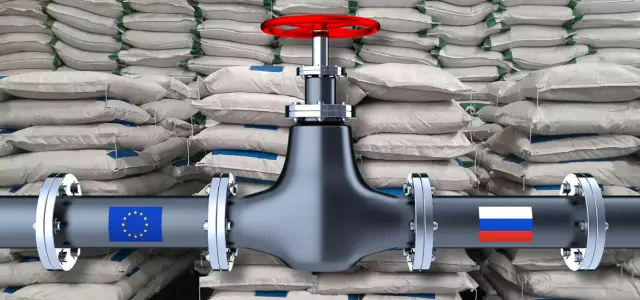
This article originally ran on Forbes.com on August 6, 2024. All rights reserved.
Daniel B. Markind is a Forbes.com energy column contributor. The views expressed in this article are not to be associated with the views of Flaster Greenberg PC.
After Russia invaded Ukraine in February 2022, Western countries enacted a series of embargoes against Russian goods and raw materials, including natural gas and oil, that many did not think possible or implementable given the realities of international trade and commerce. For example, 40 percent of Europe’s piped natural gas imports came from Russia, but, with minor exceptions, these imports are terminated.
Since then, Russia has been trying to evade the sanctions through various methods, including shifting its export markets to Asia. This has been met with mixed success, as China has taken advantage of the situation to play hardball with Russia. (Source). However, Vladimir Putin may have now found another way around the sanctions – through Russia’s and Belarus’ export of natural gas-intensive fertilizer instead of exporting gas directly.
Since the invasion of Ukraine, Russian revenue from fertilizer exports has skyrocketed, up 70% in the first few months after the invasion alone. (Source). This is notwithstanding many predictions that such export revenue would actually fall due to the sanctions. While American LNG exports made up much of the European demand following the invasion, Russia channeled much of its natural gas into fertilizers, which are very natural gas intensive to be manufactured. In fact, natural gas constitutes 70% to 80% of the running cost of a typical fertilizer company.
As a result of the mass importation of Russian fertilizer into Europe, there is now growing concern that Europe, which struggled so hard to not be dependent on Russia for energy, might become dependent on Russia for an even more important commodity, food. In order to prevent that, calls are rising in Europe to put limits on the amount of Russian fertilizer that can be imported into the European Union.
This, however, raises other dangers. Elections for the European Union, as well as in the Netherlands, France and other countries, show a marked suspicion of edicts coming from on high. The Western governments need to do a better job communicating to the farmers that the West, and especially Europe, is under a threat of Russian aggression. Not just Ukraine is under threat, but also NATO members, including the Baltic states. Russia is converting its massive amounts of cheap natural gas into fertilizer stock. It is funding its war effort through these fertilizer sales. Since time immemorial, governments have been tasked to provide security, first and foremost. The sanctions on Russian fertilizer, if enacted, will be a national security decision enhancing the security of Europe and avoiding Russia’s potential use of fertilizer as a weapon against Europe, just like it used natural gas in the past.
For this to happen, such rules or regulations should not result in a repeat of what happened to the Asian nation of Sri Lanka, when then-President Gotabaya Rajapaksa abruptly imposed a ban in 2021 on the import of agrochemicals with the aim of providing a toxin-free diet for all citizens by promoting organic agriculture. However, the decision turned out to be so disastrous that, coupled with the COVID-19 pandemic, it resulted in a famine, protests, and social upheaval. By July 2022, all of President Rajapaksa’s cabinet had resigned and the President had no choice but to follow himself. He resigned on July 14, 2022.
Unlike Sri Lanka, Europe will not be trying to ban fertilizer use, just prevent it coming from Russian sources. There will be an increase in European production of fertilizer, as well as enough supply from the United States and other sources (Canada, Latin America and Africa) to offset the Russian production to be lost. Some believe that it actually will be even less difficult to give up Russian fertilizer than ridding Europe of Russian energy dependence.
According to Benjamin Lakatos, CEO of the Swiss company MET Group:
“The crisis years are coming for the European fertilizer industry. 70 to 80 per cent of the running cost of a fertilizer company is from natural gas. The European fertilizer industry is one of the industries that will face the challenge of increasing gas and energy costs relatively fast compared to others. European policymakers will need to think about whether they want to create a market structure in the fertilizer market similar to the gas market, where the region depends on external sources, or try to introduce some sort of regulation blocking alternative imports or some local minimum content which keeps the European fertilizer industry alive.”
The bottom line is that the West must understand the breadth of products that rely on oil and natural gas. Because of this lack of understanding by the public as a whole, Russia has myriad ways to try to evade Western sanctions, and the West must be on its guard to prevent that. Further, however, we in the West must move carefully as we transition away from fossil fuels not to repeat the disaster of Sri Lanka, for to do so is not only irresponsible but will not result in the transition that is desired.

